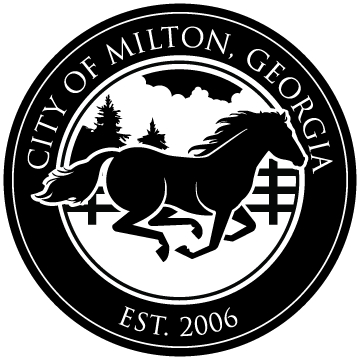Food Truck
About the application
Please join us for our annual Touch-a-Truck event! This event will introduce kids and families to their favorite large trucks.
All food trucks must be able to provide:
- An updated inspection from North Fulton (if you have not been inspected or are not up-to-date on your inspection, one can be scheduled for you!)
- COI and Business License
- Food SafeServ Certification
Quick Facts on the Event:
- This event is on Saturday, September 7 from 10am-1pm with a sensory friendly hour from 9-10am.
- It will be held at Stonecreek Church in Milton, GA.
- The estimated attendance is 4000-6000.
- There is NO vendor or application fee.
- Applications are due on August 1 and will be evaluated after that.
All applications will be reviewed by a designated evaluation team. Consideration will be given to the types of food offered to ensure a diverse selection appropriate for the estimated attendance. Please note that each event limits the number of food trucks to 2-4 per event.
For any further questions, please contact Community Outreach Manager, Emily Salerno, at emily.salerno@miltonga.gov.
About the event
Terms & Conditions
FOOD SAFTY GUIDELINES FOR TEMPORARY EVENTS
Fulton County Health Department These guidelines will help you reduce the risk of foodborne illness.
BOOTH- Design your booth with food safety in mind.
MENU- Keep your menu simple. All food must be prepared on-site on the day of the event, or in a licensed kitchen. Home preparation of foods is only allowed for baked goods.
TRANSPORTATION- If foods are to be transported from one location to another, keep them well covered and provide adequate temperature controls. Cold foods need to be kept at 41 degrees F or colder. Hot foods cannot be transported--- they must be prepared on site.
STORAGE- All food and single-use items must be stored at least 6 inches off the ground. Store toxic materials (such as bleach and other chemicals) away from food.
REFRIGERATION- Mechanical refrigeration is required, and potentially hazardous foods must be stored at 41 degrees F or lower. Provide thermometers in all cooling units.
COOKING- Poultry must be cooked to 165 degrees F. Hamburger, other ground meat, and pork must be cooked to 155 degrees F. Cook all other meats to 145 degrees F. An accurate, sanitized, metal-stem thermometer must be available and used to check internal food temperatures.
HOT HOLDING- Electrical equipment is required to keep food hot if it is cooked and then held before serving. The hot holding temperature must be 135 degrees F or higher.
FOOD DISPLAY AND DISPENSING- Keep foods and single-use items covered to protect them from insects, dust, etc. Single-use items that are not covered should be stored with the opening or food contact surface facing down.
HEALTH AND HYGIENE- Anyone with cramps, nausea, fever, vomiting, diarrhea, jaundice, open sores, or cuts on the hands must not be allowed in the food booth. Workers should wear clean outer garments, and an effective hair restraint. Workers must not smoke, eat, or drink in the booth.
DISHWASHING- Wash equipment and utensils in a 4-step process: Wash in hot, soapy water. Rinse in clean, warm water. Sanitize in a 50 ppm bleach solution for 1 minute. Allow to air dry. Fact: Most illnesses from temporary events can be traced to improper temperatures during cooking and holding food.
HANDWASHING- Set up a handwashing station which includes warm running water, hand soap (not dish soap), disposable paper towels, and a bucket to collect the dirty water. A container of warm water with a push button spigot or turn spout is acceptable. Hands must be washed prior to handling food, after using the toilet, and after touching raw meat or any other surface that may contaminate hands (including hair, face, money, etc.). Hand sanitizer or sanitizing wipes CANNOT be used in place of handwashing. The use of disposable gloves can provide an additional barrier to prevent contamination, but hands must be washed before putting on gloves, and when changing gloves.
ICE- Ice used in beverage cups must be stored separately from ice used to cool cans and bottles. Dispense ice from a bag with a scoop, never with your hands.
WIPING CLOTHS- Rinse and store your wiping cloths in a bucket of sanitizer of the proper concentration (e.g.. 100 ppm bleach) for wiping down surfaces. Use the appropriate sanitizer test strips. Test strips can be purchased at local health departments.
NO LEFTOVERS- Foods left at the end of the day may NOT be served the next day, and must be discarded. Plan accordingly.
WATER SUPPLY- Obtain your water from a potable (safe drinking) source. Any hoses used for dispensing water should be food grade (not garden hoses).
LIQUID WASTE- Wastewater cannot be dumped onto the ground, streets, or storm drains. Use containers to collect liquid waste and discard in a sanitary manner. Please make sure your booth has all of the following before your inspection, or the opening of your booth may be delayed: Handwashing station with hand soap, paper towels, container of warm water, and a bucket to collect wastewater. Dishwashing station with three containers large enough to immerse your largest piece of equipment, warm water, dish soap, sanitizer, and test strips for sanitizer. Wiping cloth bucket, water, sanitizer, and wiping cloths. Metal-stemmed thermometers for checking cooking temperatures and hot holding temperatures. Mechanical refrigeration with a thermometer in EACH unit. Containers for trash. Lids available.
Questions on the application
Business information
- Business name
- Legal business name
- Contact name
- Address
- Phone
- Website (Optional)
- Logo (Optional)
Additional information
- Please describe your menu.
- How would you categorize your menu?
- What are your prices? Will you require a minimum?
- Can you provide the dimensions of your food truck or cart?
Picture requirements
- Minimum pictures required: 1

